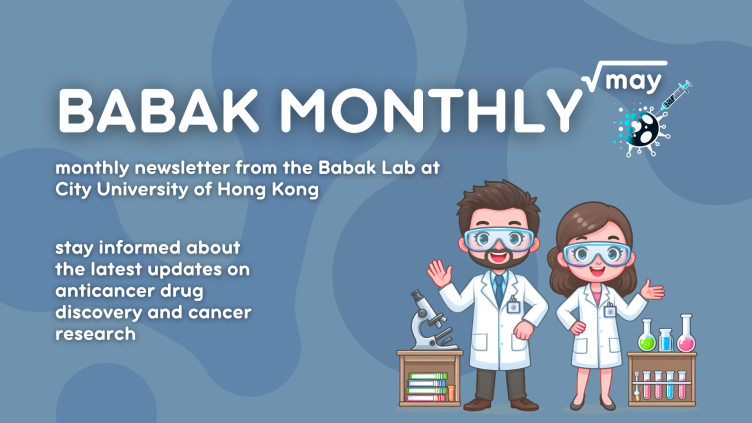Maria Babak, Head of Drug Discovery Lab at City University of Hong Kong, shared a post by Babak Monthly on LinkedIn:
“Welcome to our May edition of Babak Monthly!
Babak Monthly in May: Empowering Medicinal Chemistry
This month, we’re thrilled to bring you fascinating insights into cutting-edge cancer vaccines, an in-depth look at the promising BOLD-100, and a captivating diary from our inspiring trip to Shenzhen. Plus, don’t miss our exclusive interview with Professor Kenneth Kam-Wing Lo.
Stay curious, stay informed, and stay connected!”
Quoting Babak Monthly’s post:
“Written by Prof. Maria Babak
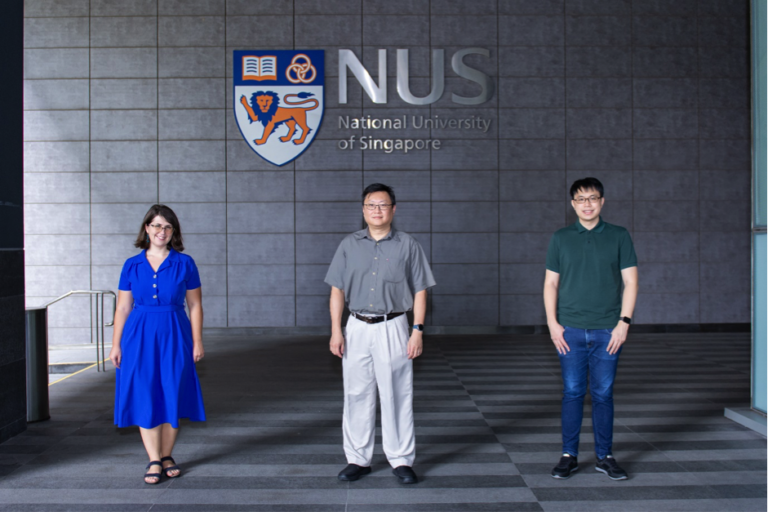
For a long time, there was a common belief among medical professionals and cancer patients that chemotherapy could only harm the immune system. This belief stemmed from the fact that chemotherapy drugs can affect rapidly dividing cells, including both cancer cells and certain healthy cells, such as those in the immune system. As a result, chemotherapy was thought to weaken the immune system, making patients more susceptible to infections and other health complications.
However, in recent years it was discovered that certain chemotherapy drugs, in addition to targeting cancer cells, can also have a positive impact on the immune system. These drugs can stimulate the immune response, enhancing its ability to recognize and eliminate cancer cells. This fascinating phenomenon, known as Immunogenic Cell Death (ICD), has been extensively studied by Prof. Guido Kroemer and his colleagues from Gustave Roussy. This immune response, triggered by ICD, not only eliminates the cancer cells at the site of treatment but also helps to recognize and attack cancer cells that may have spread throughout the body. In this way, it functions like a cancer vaccine, training the immune system to recognize and destroy cancer cells wherever they may be located.
Historically, the discovery of ICD-inducing drugs occurred serendipitously, meaning their immunostimulatory effects were not intentionally designed. Two examples of such drugs are oxaliplatin and doxorubicin, which were primarily recognized for their DNA-damaging properties. Subsequently, it was found that both oxaliplatin and doxorubicin could also trigger ICD, leading to an immune response against cancer cells.
Prof. Wee Han Ang from the National University of Singapore conducted a groundbreaking targeted screening of multiple platinum complexes, aiming to identify a potent and specific drug candidate capable of targeted ICD induction. Regrettably, most of the tested compounds did not exhibit ICD-inducing properties. However, amidst this disappointment, there was a remarkable exception – one compound stood out as a promising ICD inducer! Yet, the specific reasons and mechanisms behind its ICD-inducing properties remained unclear.
Following this promising discovery, a collaborative team of three chemists from the National University of Singapore and the City University of Hong Kong, including Prof. Wee Han Ang, Maria Babak, and Dr. Max Tham, embarked on a focused investigation. Our objective was to conduct a targeted screening of structurally similar platinum complexes to determine which specific component or segment of the molecule played a crucial role in inducing ICD properties. By systematically analyzing various modifications and variations within the molecule’s structure, our team aimed to gain insights into the molecular determinants responsible for the observed ICD-inducing effects. As a result of this systematic investigation, we found a unique molecule, which we called PlatinER that demonstrated exceptional efficacy in killing cancer cells and activating immune response.
This is what Dr. Max Tham says about this: ‘Our drug is called PlatinER because it acts not on DNA but on the endoplasmic reticulum, a specialized cellular organelle responsible for proper protein function. As a result of the drug’s action, proteins in cancer cells start to fold incorrectly, leading to a state of severe stress in the endoplasmic reticulum. Consequently, cancer cells, unable to cope with such stress, begin to express signals such as ‘Eat me!’ and ‘Find me!’ Then our immune system cells recognize these signals and initiate a program to destroy the harmful cancer cells.’
We hope that our compound will help reduce recurrences after primary chemotherapy.
Read our paper here.
Bold Therapeutics’ BOLD-100: Revolutionizing Cancer Treatment with Ruthenium-Based Drug
Written by Jemma Arakelyan, 3rd Year PhD student
Bold Therapeutics Inc. is a pharmaceutical company dedicated to the development of cutting-edge cancer therapeutics that specifically target resistant forms of cancer, aiming to significantly improve patient outcomes. Their lead candidate, BOLD-100, also known as sodium trans-[tetrachlorobis(1H-indazole)ruthenate(III)], is a ruthenium-based anti-cancer therapeutic that is currently in clinical development.
BOLD-100 is closely related to a molecule called KP1339, which was developed by Prof. Bernhard Keppler from the University of Vienna. The names BOLD-100 and KP1339 are often used interchangeably.
BOLD-100 exerts its anti-cancer effects through multiple mechanisms, leading to cell death via apoptosis. It inhibits GRP78 and modulates the unfolded protein response (UPR), while also inducing reactive oxygen species, thereby causing DNA damage. BOLD-100 has shown the ability to synergize with cytotoxic chemotherapies and targeted agents, enhancing cancer cell death. Additionally, it has been found to induce immunogenic cell death in colon cancer organoids.
This extraordinary compound works in multiple ways to defeat cancer. It is a master at disrupting a special protein called GRP78 and influencing a specific process called the unfolded protein response (UPR), which are like the control centers for cancer cell survival. By doing so, it throws cancer cells into chaos and makes them vulnerable. Additionally, BOLD-100 was shown to induce reactive oxygen species (ROS), thereby causing DNA damage. Another amazing ability of BOLD-100 is its ability to trigger immunogenic cell death. In fact, it has shown this power in colon cancer organoids, which are like mini versions of tumors grown in the lab.
But here’s the exciting part: BOLD-100 doesn’t fight alone. It’s a team player! It works together with other cancer-fighting treatments like chemotherapy and targeted therapies, making them even more effective in killing cancer cells. It’s like a superhero team-up to save the day!
Exciting progress has been made in the clinical development of BOLD-100, building upon the success of its precursor molecule KP1339. KP1339 underwent a Phase 1 trial where it was given as a standalone treatment to patients with advanced cancers who had already received extensive prior therapy. The trial demonstrated that KP1339 was well tolerated, with manageable side effects. Encouragingly, stable disease was observed in nine patients, and one patient experienced a lasting partial response, indicating the potential effectiveness of the treatment. Based on these results, the recommended dose for Phase 2 trials was determined to be 625 mg/m2. Currently, BOLD-100 is undergoing an advanced Phase 1b/2a clinical trial in combination with the chemotherapy regimen FOLFOX, which is used to treat advanced gastrointestinal cancers. This ongoing trial involves a dose escalation phase followed by a cohort expansion, with a total of 117 patients enrolled. In January 2024, interim data from the trial was presented, revealing promising outcomes. The combination of BOLD-100 and FOLFOX demonstrated notable clinical benefits, including improved progression-free survival, overall survival, and objective response rate compared to existing therapies. Importantly, the treatment showed minimal neuropathy or significant side effects. These findings highlight the potential of BOLD-100 in combination with FOLFOX as an active and well-tolerated treatment option for advanced gastrointestinal cancers.
Other potential applications of BOLD-100 beyond its current clinical trials may include exploring its efficacy in other types of cancer, investigating its potential as a combination therapy with different chemotherapy regimens or targeted agents, and assessing its ability to overcome drug resistance in cancer cells.
The ongoing clinical trials of BOLD-100 have shown extremely promising results. If it receives approval from the FDA, it will be a groundbreaking achievement as the first-ever ruthenium-based drug to be approved for use in cancer treatment. This is an exciting prospect, and we hope for positive outcomes. Let’s keep our fingers crossed for the success of BOLD-100 in the journey towards fighting cancer!
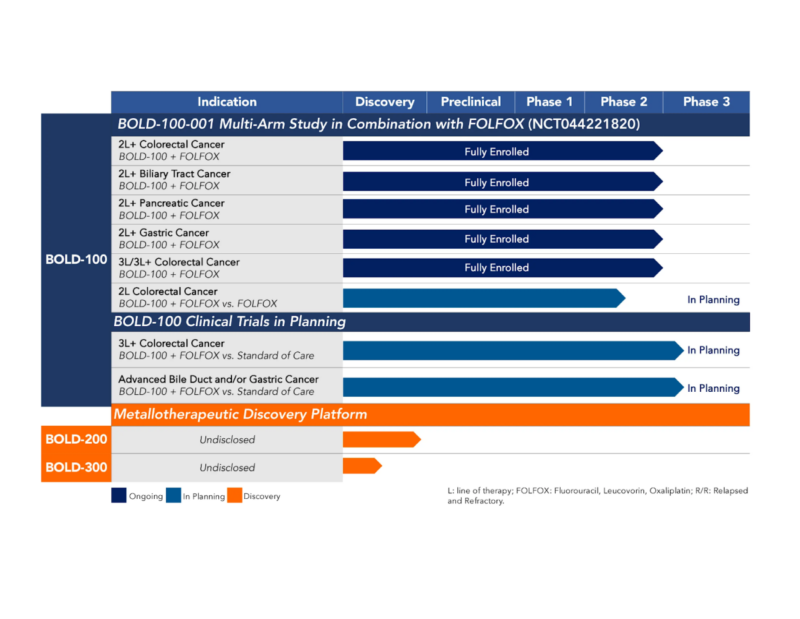
Interview with Professor Kenneth Kam-Wing Lo (Department of Chemistry, City University of Hong Kong)
The interview was conducted by Victor Tuzov, 4th Year PhD student
A path to becoming a top scholar – Professor Lo’s academic background
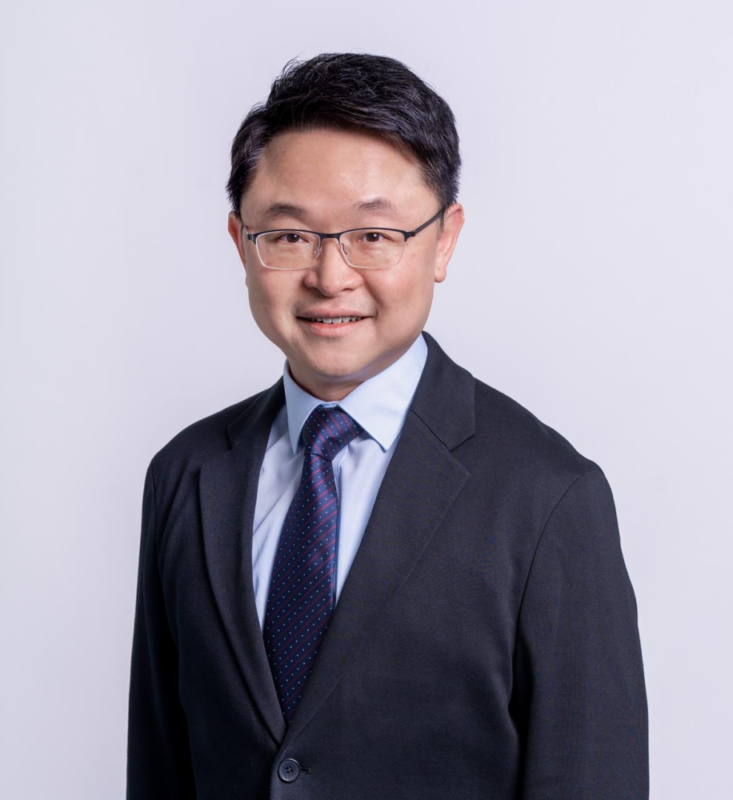
Viktor: Good afternoon, Professor Lo! Thank you so much for taking the time to do this interview. It is a great pleasure to talk to you today, and I hope you will enjoy our discussion.
Prof. Lo: I hope the information that I will provide during this interview will be useful for the students when they are about to start their careers or finish their degrees. Hopefully, my experience will be meaningful to them.
Viktor: Considering your past achievements, what was your source of motivation to pursue an academic pathway? How did you manage to attain such success in the early stages of your career?
Prof. Lo: I was deeply influenced by my own PhD supervisor, Prof. Vivian Yam. Even during my time in secondary school, I liked my chemistry teacher. He taught us a lot and inspired many chemistry students through his demonstrations of chemical reactions. The process of conducting experiments was particularly captivating, always leaving me intrigued. Then, I took chemistry as my undergraduate subject at The University of Hong Kong, where the teaching methods were far more diverse compared to what I had experienced in high school.
Initially, I thought of becoming a teacher, either at the secondary or primary level. However, my PhD supervisor encouraged me to go for a new research project. Although I lacked confidence in accepting the offer, as I was determined to become a teacher after completing my studies, I decided to pursue an MPhil instead of a research project. After one year, I was transferred to a PhD program. Then, I spent approximately three to four years in Vivian Yam’s research group.
I believe her approach to handling things, her passion for knowledge, and her dedication to science deeply impacted me. Her enthusiasm and commitment to work served as a great inspiration and motivated me to move in a similar direction. Therefore, in the early 1990s, my colleagues and I dedicated a significant amount of time to research, working diligently every day, often staying late into the night and even working on weekends. Back in those days, there was really no life, but we enjoyed that time as we learned a lot. The principles I acquired from her group – being proactive, not slacking off, striving for excellence and maintaining a critical mindset toward one’s own work – have remained personal standards that I continue to uphold until now.
Another influential figure in my academic journey was Professor Allen Hill from University of Oxford, with whom I conducted my postdoctoral research. My experience with him was different—he was more laid back but remained actively involved in academic research. Despite joining Allen Hill’s group when he was already in his sixties, he maintained numerous collaborations and knew a lot of people from different disciplines. I believe this also inspired me to learn how to talk to new people and know not only about their professional pursuits but also about their personal lives. I consider all these techniques and influences to have played pivotal roles in shaping my career development.
Viktor: From this perspective, would you consider Vivian Yam and Allen Hill as your academic mentors?
Prof. Lo: Yes, definitely! I consider both Vivian Yam and Allen Hill to be my mentors. Sadly, Allen Hill passed away a few years ago, but Vivian Yam is still actively working at the University of Hong Kong. These two individuals, along with many other colleagues in the later stages of my career, have had a positive impact on my life. I am immensely grateful for their guidance and influence.
Viktor: Do you believe it is important to have mentors like them in the lives of future university graduates and career professionals?
Prof. Lo: Absolutely! I think it’s crucial for future university graduates and professionals to have mentors. Nowadays, it is even easier to establish these kinds of professional connections because students have more opportunities compared to the past. For example, if undergraduate students want to have some research experience, they can always apply for a specific research scholarship or internship. Alternatively, they can work in a lab and receive a salary. There are numerous opportunities available today compared to earlier times. Therefore, I encourage young students to explore all possibilities.
Viktor: As you mentioned, you worked under the guidance of Professor Vivian Yam and Professor Allen Hill. It appears that the environment was quite competitive. Did this competitiveness serve as a source of stress or motivation for you?
Prof. Lo: When I joined Vivian’s group, I was the third generation of her students, so it was a relatively small group. In terms of the environment, it was a very nice group made up of dedicated and inspired people. When I was in the group, there were only eight or nine people at most, so it was also easier to establish good connections. Generally speaking, back in those days, there were a lot more interactions between the professor and the students.
Regarding Allen Hill’s group, it was a more international environment. Due to his approaching retirement, he stopped recruiting new PhD students. So, quite a lot of people brought their own funding and scholarships to conduct postdoctoral research in his group. In that case, it was a more competitive setting, but we got along very well. Most of us had different expertise and cultural backgrounds, such as India, Germany, Japan, Mainland China, Thailand, the UK, and many others. That’s why I enjoyed that time, as we all shared our own unique experiences. Therefore, it was a very competitive yet positive environment.
Professor Lo’s academic experience and insights for beginning scholars
Viktor: From your perspective, is it important to spend time with colleagues and have a life outside academia? Does it contribute to student self-growth?
Prof. Lo: When I started my career, we used to spend more time together. Unfortunately, due to my current workload, I don’t have as much opportunity to spend time with my students. However, it is important for us to interact with students not only during work but also outside the campus, such as having meals together or going for afternoon tea. I wish I could spend more time with them. Seriously! I know some other professors are doing this, and I really admire them. I promise I will try my best to do the same.
I think it’s a really good chance to get to know people. After all, it’s not just about academic achievements; personal and professional growth are also very important. Even though we are all adults, sharing life experiences with students can be beneficial for their self-development. Therefore, I consider the exchange of life experiences outside academia to be very important.
Viktor: Times have changed, and it seems that competition in academia has increased. What advice would you give to students on how to excel in this environment? Are there any particular values or strategies they should focus on?
Prof. Lo: If I were speaking to an undergraduate student, I would suggest focusing on different areas of knowledge. Don’t limit yourself to just one area! Take courses in other disciplines, no matter how basic they are. Nowadays, there are a lot of interactions between different subjects. For example, the research we are currently working on lies at the intersection of biology and chemistry. As an undergraduate student, you have more time, so take advantage of it by taking more courses, applying for exchange programs, working in labs, and exploring all available options.
For PhD students, it is similar: attend conferences, collaborate with other labs, and acquire as much diverse knowledge as possible. If you only have expertise in one narrow field, then you will be less competitive. Therefore, it is essential to explore and stay informed about the most progressive areas of science. For example, we should learn more about AI and the ways to link it to chemistry and biology. Keeping ourselves updated and well-informed about newly developed technologies is crucial.
Viktor: From what I understand, academia is becoming more interdisciplinary, and it’s important to embrace different perspectives to stay relevant. Is that correct?
Prof. Lo: Absolutely! It’s important to be aware of what others are doing. There’s no harm in learning more, and sometimes, a new subject can inspire you to expand your research into new areas. So, I would suggest not confining yourself and limiting your capabilities; instead, explore more!
Viktor: Prof. Lo, you’ve published an impressive number of articles. How do you manage to balance research, teaching, and other professional activities? Is it a matter of time management, or is there another secret?
Prof. Lo: I believe staying focused is crucial. For example, if I plan to dedicate a specific hour to writing a research paper, I avoid distractions and fully immerse myself in that task before moving on to something else. However, to be honest, I’m still learning and trying to improve my time management. When I work with the Talent and Education Development Office, I often receive multiple requests, and sometimes it’s easy to get distracted. So, I’m still learning.
Viktor: Quite recently, you received a prestigious teaching award here at CityU, and it seems like you’re dedicating a significant amount of time to teaching. In this case, would you consider yourself more of an educator or a researcher these days?
Prof. Lo: I would consider myself a hybrid – both a teacher and a researcher. Since the beginning of my career, I believe teaching should not be separated from research. When we conduct research, we also teach our graduate students. Similarly, when we teach, we identify the best-performing students and encourage them to pursue PhD studies. Teaching and research are intertwined and cannot be truly separated from one another.
Viktor: What is the key element of teaching? Is it more about an approach to the students or the materials you prepare for the class?
Prof. Lo: It really depends on the students you’re teaching. If we are talking about top students, then the teaching materials become the most important component. For these students, you need to provide updated content based on new concepts and materials to inspire them.
For average students, you need to ensure that the content of your lessons is engaging enough and make an effort to stimulate their interest. If you don’t help them stay focused during the lesson, they might easily get distracted. In terms of pedagogy, the main objective of these lessons is to spark their interest and capture their attention. It’s the best way to ensure they will improve and get better in their study progress. The best approach is to use techniques that will be helpful, whether it’s traditional slides, catchy cartoons, or interesting memes – anything that aids in capturing students’ attention and keeping them focused on lecture materials. Therefore, it’s always a combination of different approaches.
Viktor: For the average student, what values should they focus on to become top students and excel in their studies?
Prof. Lo: Certainly, we have various metrics to assess a student’s performance, such as GPA. However, in my opinion, a top student is someone who possesses the ability for critical and logical thinking. This means going beyond rote memorization and being able to digest the material and apply knowledge to problem-solving. These are the criteria for becoming a top student.
Viktor: So, does it mean having good grades is not enough?
Prof. Lo: Grades are not the sole measure of a student’s talent, and they are not always reliable. If someone can remember everything, they can easily get A+ grades in all subjects. However, when they work in a real lab, they may lack practical knowledge and struggle to solve problems. That’s why grades are just one aspect, but overall academic performance is another thing. Whether the student is truly exceptional is a matter of ability for critical and logical thinking, problem-solving skills, and the outcomes of their work.
Viktor: What’s your perspective on other activities that can enrich students’ knowledge and contribute to their personal growth? You recently participated in a couple of TED conferences. What are your thoughts on this type of engagement beyond academia?
Prof. Lo: I believe TED conferences are an excellent format for bringing in renowned speakers and allowing them to interact with our students. It’s also a valuable opportunity for students to develop organizational skills. Each student can take on the role of a curator or producer with specific responsibilities. They learn how to select and invite speakers, organize the event, recruit helpers, and handle catering. It’s a fantastic experience for them.
That’s why our Talent and Education Development Office fully supports these students on an annual basis. Many of them are involved in organizing TEDxCityU events. So, we are trying our best to help them and provide our assistance in organizing these conferences.
Professor Lo’s life outside academia and his plans
Viktor: Moving to your everyday life, what brings you happiness outside of academia? Do you believe it’s important to have hobbies and interests outside of the academic sphere?
Prof. Lo: I tried my best to keep up with my hobbies. Looking back at the early days, I had much more time for them. Unfortunately, I don’t have as much free time nowadays. Talking about my hobbies, I enjoy music a lot, especially pop music. I’m not sure if I can call myself a collector, but I used to buy a lot of music CDs. Lately, I have returned to collecting vinyl disks, although I don’t have a record player. I have been collecting these disks for quite some time and generally find them very interesting. So, I consider music to be my hobby. I believe it’s important to take your mind off your career because life is not just about work. Work is important, but we should also develop other interests. That will make life more balanced and fulfilling.
Viktor: Do you think having a hobby actually helps in a student’s personal growth?
Prof. Lo: Definitely! If you only focus on your field of knowledge, such as chemistry or biology in my case, you won’t be able to see things from different perspectives. On the other hand, engaging in activities like taking walks, swimming, playing musical instruments, or even listening to music can help take your mind off your work. In the end, after you come back to your work again, you might approach your problem from a completely different perspective. That can help you solve the problem or find answers to your research questions. Hence, interactions outside of academic learning are very important for personal growth and self-development. Given the opportunity, I strongly advise students to explore new hobbies if they don’t have any.
Viktor: What would be your final recommendation to young scholars? What should they focus on in the early stages of their careers?
Prof. Lo: I would tell every young scholar to be open and not confine themselves or their thinking. If you are just starting your academic career, I recommend pursuing at least one or two postdoctoral positions after completing your PhD. Choose topics that are completely different from what you worked on during your PhD program, get to know new people, and learn new techniques. At the same time, developing interdisciplinary knowledge is essential because if you focus only on one topic, you may not fully succeed or publish exceptional papers.
Therefore, you can only excel by combining different topics together and ensuring that your work is appreciated and recognized by experts in their respective fields. If a young scholar is determined to pursue an academic path, I recommend staying updated on the latest developments in their field, exploring new ideas, networking with new people, and expanding their professional connections. In terms of networking, social media is playing an extensive role these days. So, I suggest engaging with social media not just for leisure but also to connect with people who share similar interests.
Viktor: Thank you for providing such valuable recommendations! I’m sure they will be very useful for our students and young scholars who are striving to build their academic careers. As we approach the final part of our interview, would you like to share any details about your future plans?
Prof. Lo: Talking about our office and the university as a whole, we have many dedicated educators and individuals who are passionate about helping students learn and excel in their studies. I find it very meaningful and inspiring to witness the efforts we put into nurturing new talents and transforming average students into top professionals. In the short term, I will continue my work in the Talent and Education Development Office, focusing on providing support to colleagues who are teaching and to our students who are still learning. At the same time, I hope to further explore my research and use my findings to contribute to academia and our university.
Viktor: Dear Professor Lo, thank you so much for your time and this insightful conversation! We eagerly anticipate your future research projects and hope that your inspirational interview will motivate young scholars!
Prof. Lo: Thank you for having this wonderful interview and providing an opportunity to address these important topics!
Viktor: Thank you very much for the insightful interview, Professor Lo. Your perspectives and wisdom have been truly enlightening. We would like to wish you the very best of luck in all your future endeavors, both in your role at the Talent and Education Development Office and in your ongoing research pursuits. May you continue to inspire others and make significant contributions to academia and beyond.
Unraveling China’s Genomics Innovations: The Babak Lab is traveling to Shenzhen!
Written by Anna (Kira) Kirsanova , 2nd Year PhD student
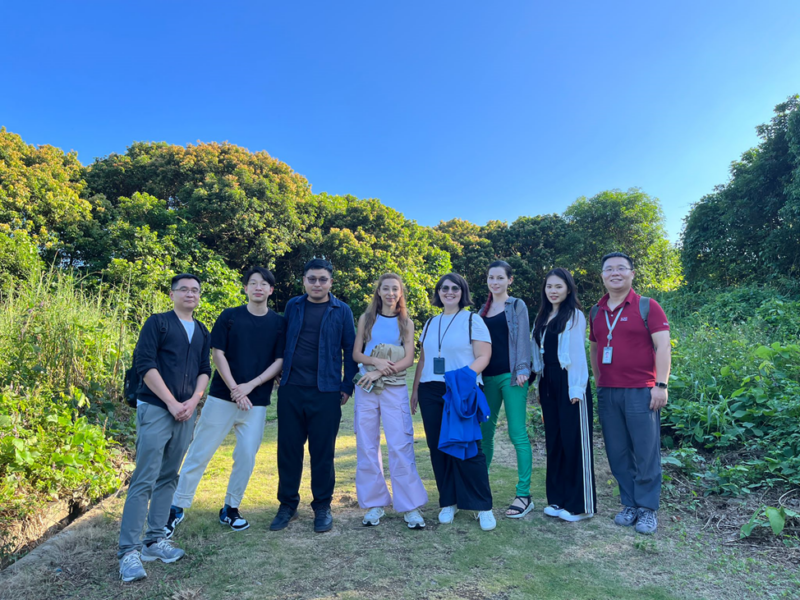
Last month our research group was invited by the MGI to visit Shenzhen. The journey began with a visit to the MGI Tech facility, where innovation and science converged seamlessly. As we stepped into the Yantian Beishan Industrial Zone, we saw a flurry of activity from state-of-the-art production lines equipped with advanced technology.
Throughout the tour, we witnessed the MGI’s pivotal role in combating the COVID-19 pandemic. Their swift mobilization of resources and expertise to develop diagnostic tests and explore the genetic structure of the virus showcased human resilience and ingenuity.
But MGI’s efforts extended beyond the pandemic response. They were pioneers in prenatal testing and tumor genetic sequencing, leading the charge in revolutionizing healthcare delivery. From mobile ultrasound diagnosis centers to robot doctors and oxygen chambers, MGI’s innovations promised a brighter future for healthcare.
Then our journey took us to China National GeneBank (CNGB), a symbol of China’s commitment to preserving genetic diversity. Nestled among green hills, China National GeneBank housed a vast repository of genetic samples and the comprehensive CNGBdb, a unified platform dedicated to storing, sharing, and applying gene big data, serving as a hub of knowledge and collaboration.
At the entrance, guests are greeted by sculptures of mammoths, while an exhibition inside provides information about other extinct species. Here, in the spacious hall, bathed in the glow of natural light, an evolutionary series of sequencers is showcased, ranging from vintage models to those utilized just a few years ago.
Of particular note was the collaborative effort between MGI and China National GeneBank in the Million Microbiomes from Humans Project. Together, they aimed to sequence and analyze one million microbial samples for mapping the human microbiome. Utilizing MGI’s DNBSEQTM microbial genome sequencing technology, the project aims to create a comprehensive, open-access database. A portion of the data produced by the project is stored within CNGBdb.
The final stop on our tour was the new MGI office, where we were introduced to the company’s VR-related developments. There was a captivating demonstration among them in which, through a video on a tablet, we observed a VR model of a detail of a sequencer, complete with its layers, without physically disassembling it. Furthermore, with the help of VR goggles, we watched a virtual model of a multi-story building. It was very illustrative, so, as we believe, after such a demonstration, anyone could easily navigate it and find all the fire exits without any difficulty.
Experiencing these innovative applications left us both impressed and inspired. Continuously contemplating the potential applications of VR in student education, we eventually conceived our own VR project. Currently, it is in the development stage, but we can’t wait to write more about it in the upcoming issues of The Babak Lab Chronicles!
In conclusion, our trip to Shenzhen was an enriching and fascinating journey filled with discoveries and inspiring insights. Besides that, we met some wonderful people working at MGI, to whom we are truly grateful for their hospitality and insights. But our adventure doesn’t end here; it’s just the beginning of a new chapter filled with endless possibilities and exciting collaborations!
If you are interested in collaborating with our research group, please contact Prof. Babak at [email protected].”
Source: Maria Babak/LinkedIn and Babak Monthly/LinkedIn
